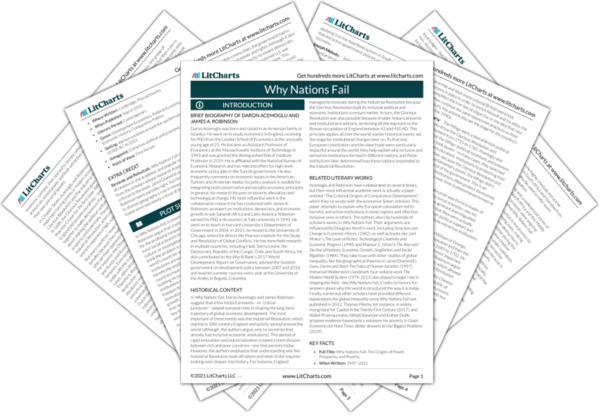AI ToolsNew
Tools to make learning and teaching easier
|
Previous
Apartheid
|
The Arab Spring Term Analysis |
Next
Creative Destruction
|
In this book we’ll argue that the Egyptians in Tahrir Square, not most academics and commentators, have the right idea. In fact, Egypt is poor precisely because it has been ruled by a narrow elite that have organized society for their own benefit at the expense of the vast mass of people. Political power has been narrowly concentrated, and has been used to create great wealth for those who possess it, such as the $70 billion fortune apparently accumulated by ex-president Mubarak. The losers have been the Egyptian people, as they only too well understand.

Unlock explanations and citation info for this and every other Why Nations Fail quote.
Plus so much more...
Get LitCharts A+